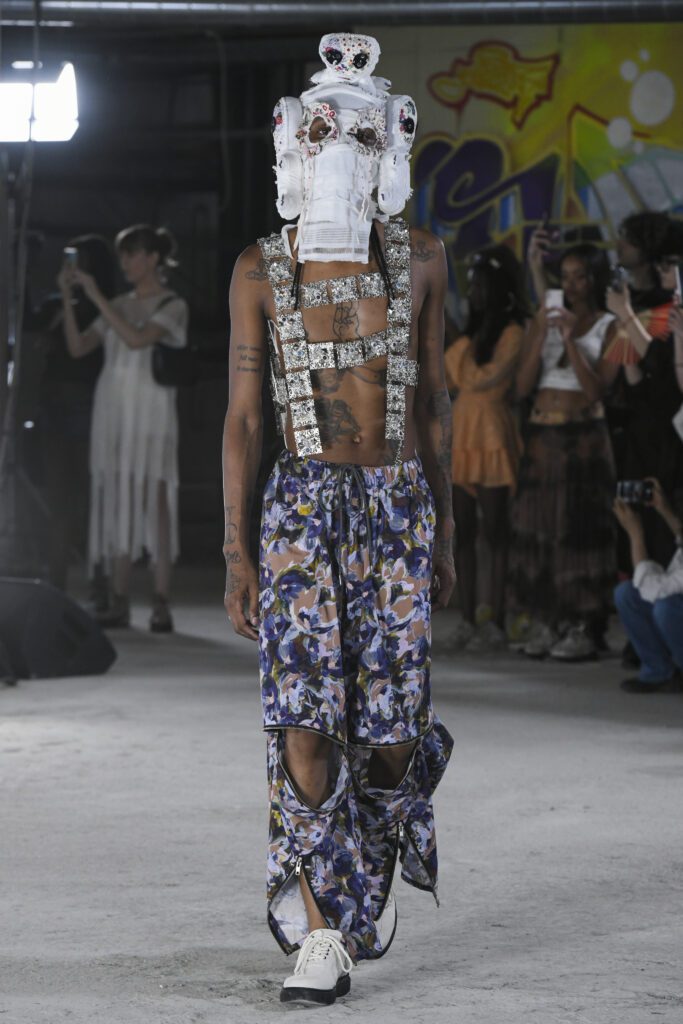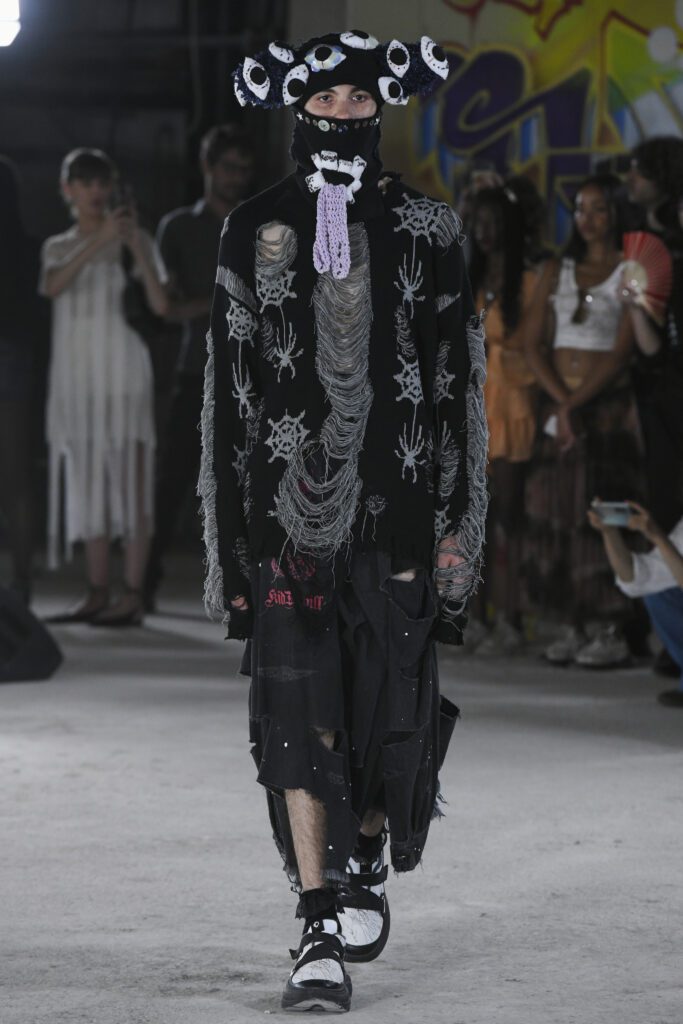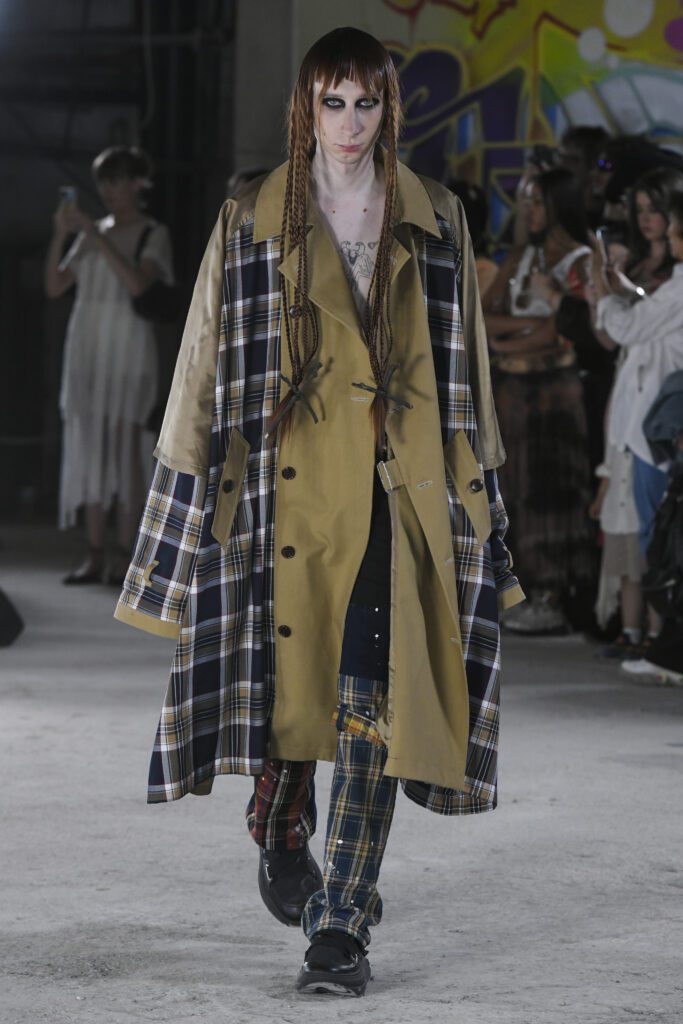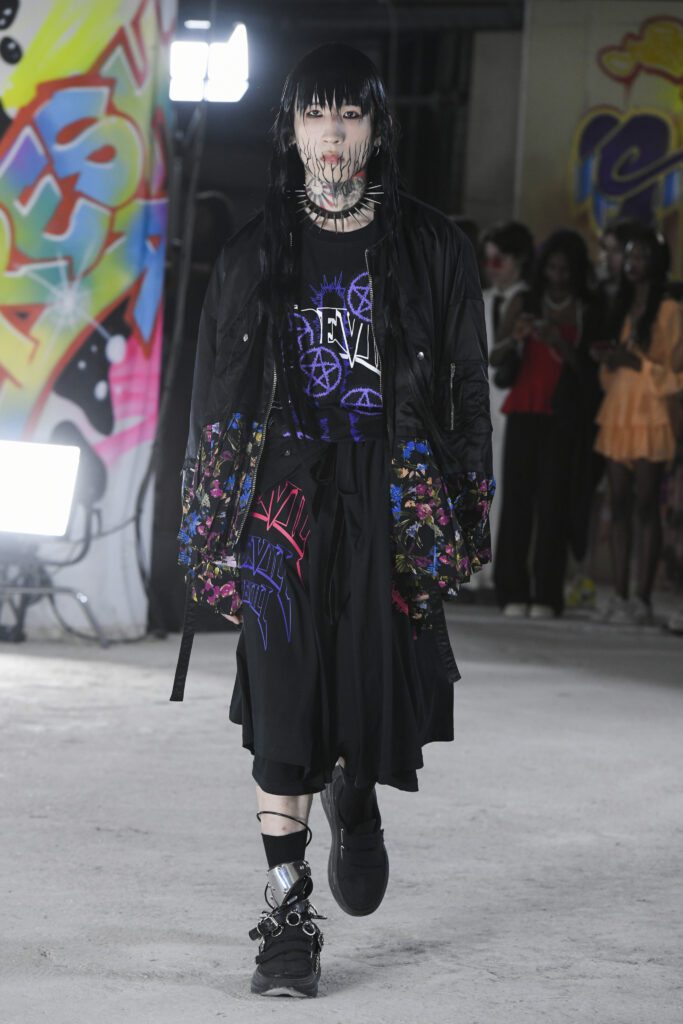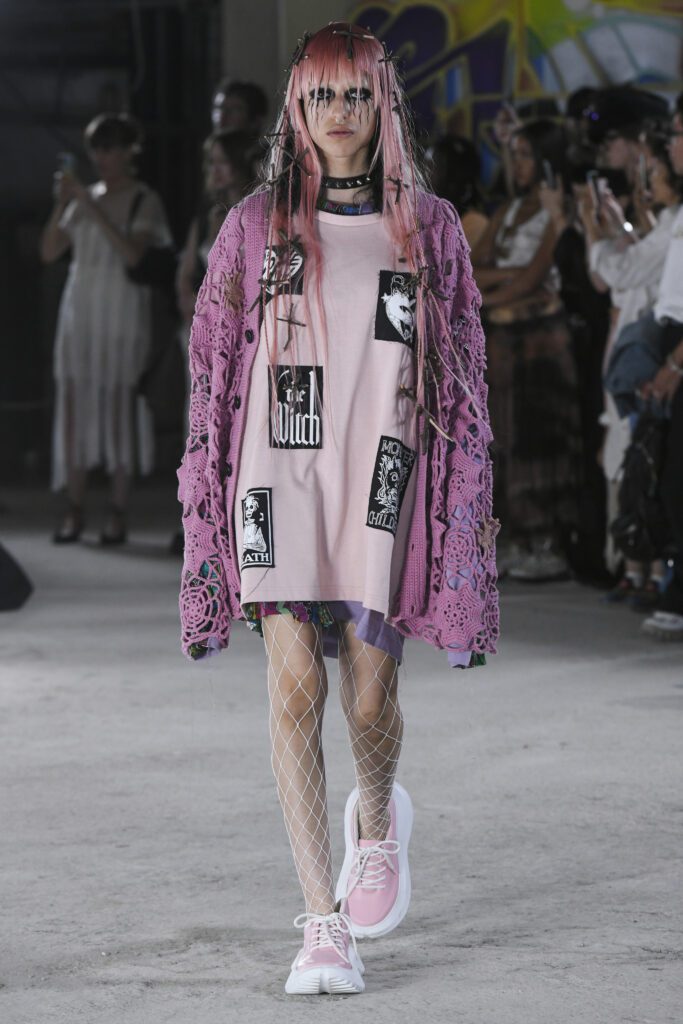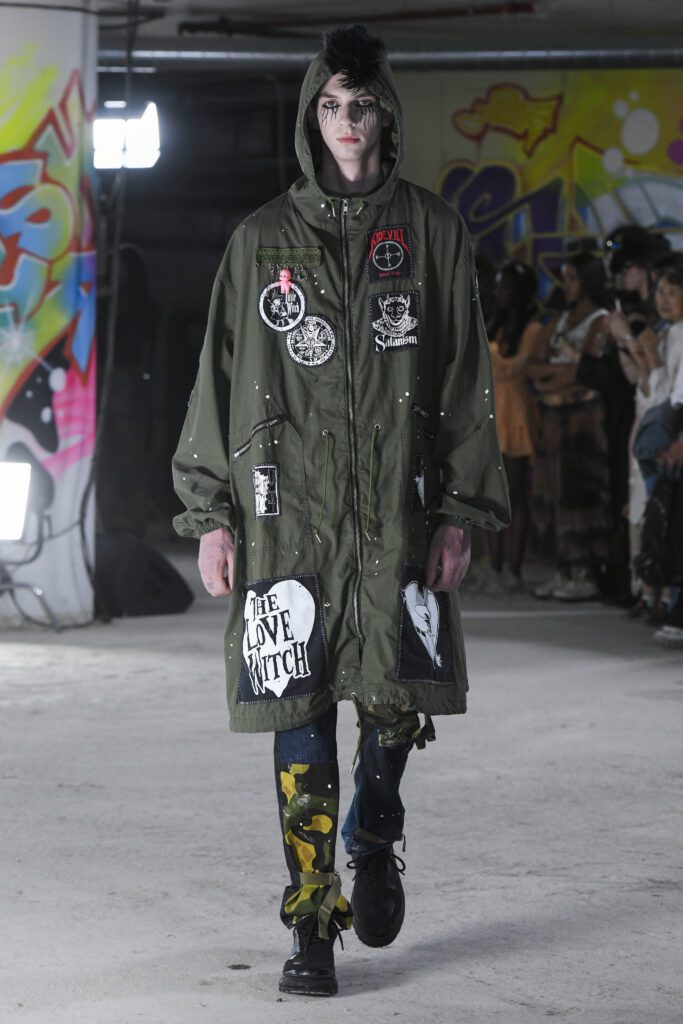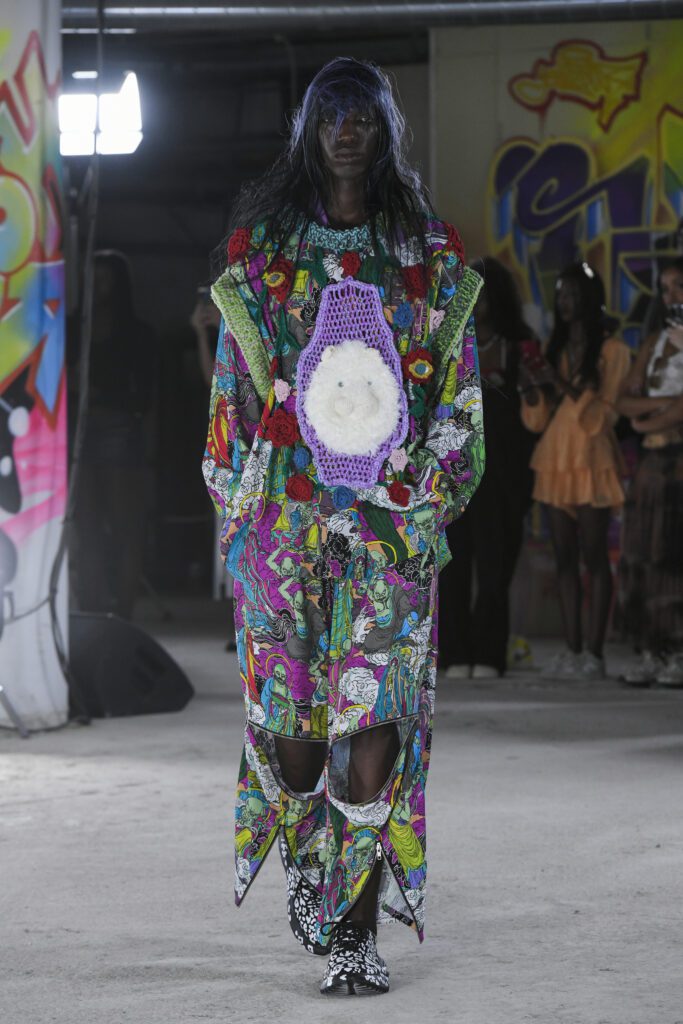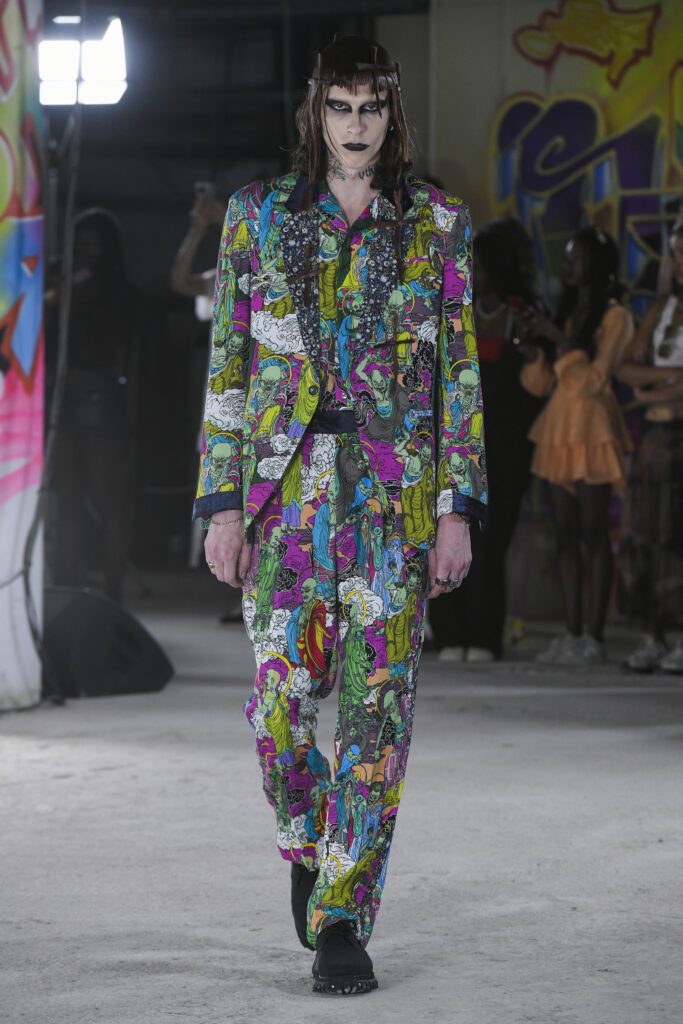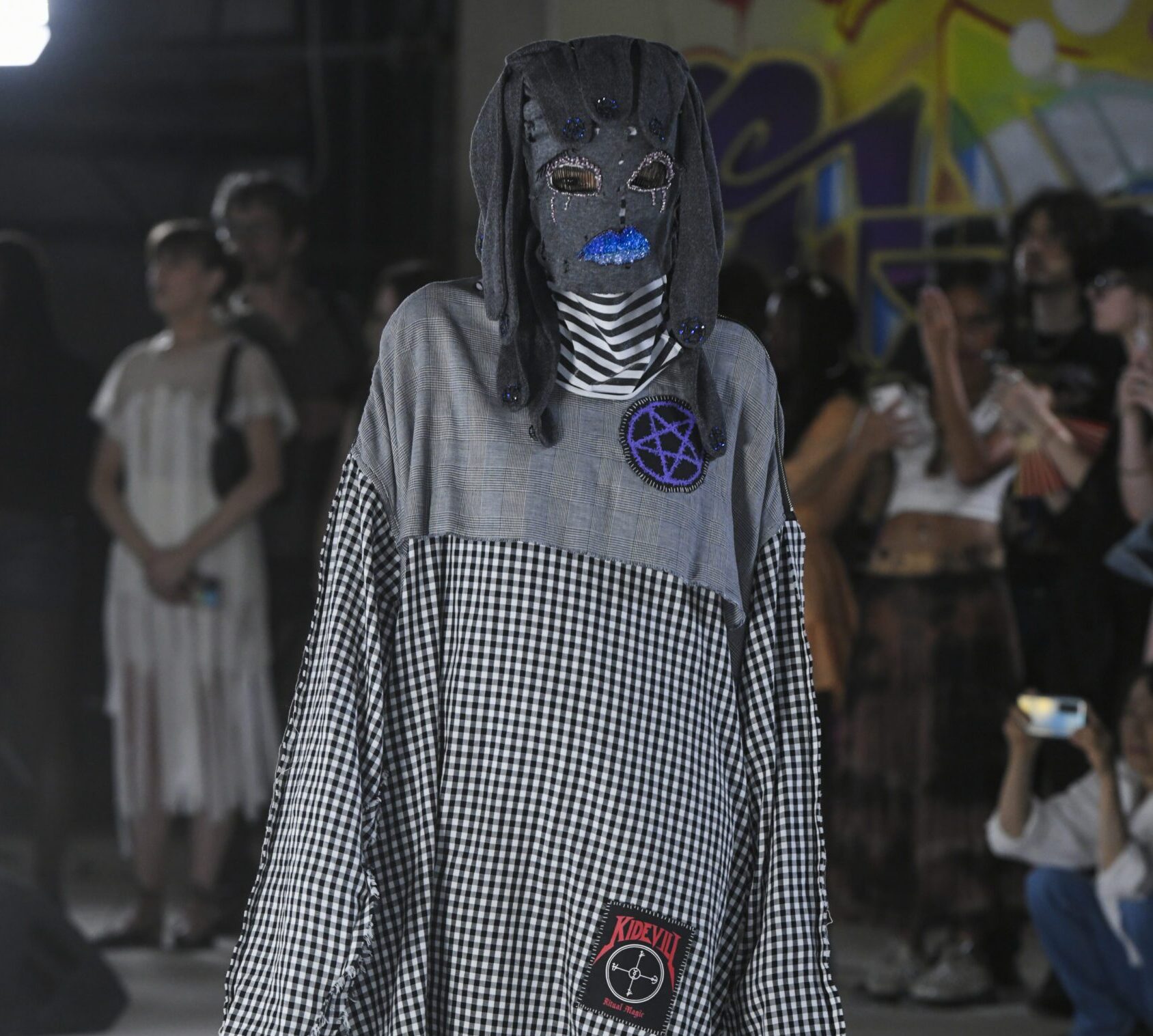
Kidill SS24
The continuous process of creation for Kidill is clearer than ever that punk for Hiroaki Sueyasu is just not a style, but rather a state of mind and attitude. He sees the essence in fashion as an emotional outpouring of a sense of personal “life” that encompasses anguish, desire, sorrow, and anger, which coexists with the perspectives of disobedience, rejection and
restraint, action, anti-industry, and DIY-ism, connecting the perspective of how we breathe in the mundane world and live with our heartbeat, being instinctive.
Confronted with a world in which the dichotomy of good and evil crumbling with a deafening sound, a world drowning in uncertainty, and a modern society infested with anonymous people, the designer says that he has an honest urge to “return of his senses without getting caught in the midst of any commotion”. Evident in the SS24 collection, a unmalicious rebellion against algorithms and the majority, the return to his initial impulse of the DIY creativity, he has found “the very value of craftsmanship that is not to be imitated and irreplacable” –the multilayering of silhouettes and details depicts traces of his hands moving on the impulse that resists on existing ideas.
Being “a minority of the whole” is one of the characteristics that Sueyasu will revere, shared by all the entities that inspires him on his creation. Hardcore and youth culture players, the bearers of anarchism and the new left whose cult art and music encompass a small number of ardent followers, the London punk boys who drove a wedge into a tasteless scene – the challenge of the “heretics” trying to create a new field. The “heretics” (HERESIE CHILDREN) attempting to build the new field are the incarnation of the antithesis, dissenting with a sense of ties that are embedded in the world. Kidill gives you a unique and different look than anyone else.
Moreover, a perceptual reading of punk ideology leads the Kidill collection more outward from the classical Parisian theology of fashion. Sueyasu’s focus on the idea of the “minority spirit or ideology” and the satanism of these studies are wittily cited in the graphics, textiles, and handcrafted headpieces that characterize the collection. Widely occurring from the 16th to the 18th century, the “witches” at the center of the Moral Panic movement, widespread during this time, were not only misunderstood and prejudiced as deviant and a threat to society at large, but were also considered dangerous under the monarchy as objects of oppression and ostracism. Sueyasu describes how the small but strong community of witches who shared their secrets, “known only to the known,” that have sometimes banded together to resist oppression, even at the cost of their own lives, must have contained an extraordinary life force. These connected to the Boro technique of patching pieces together to protect themselves from the intense cold, Sueyasu expresses his determination to continue to challenge for his own freedom and projects the future of his brand on the “value of heresy.”



